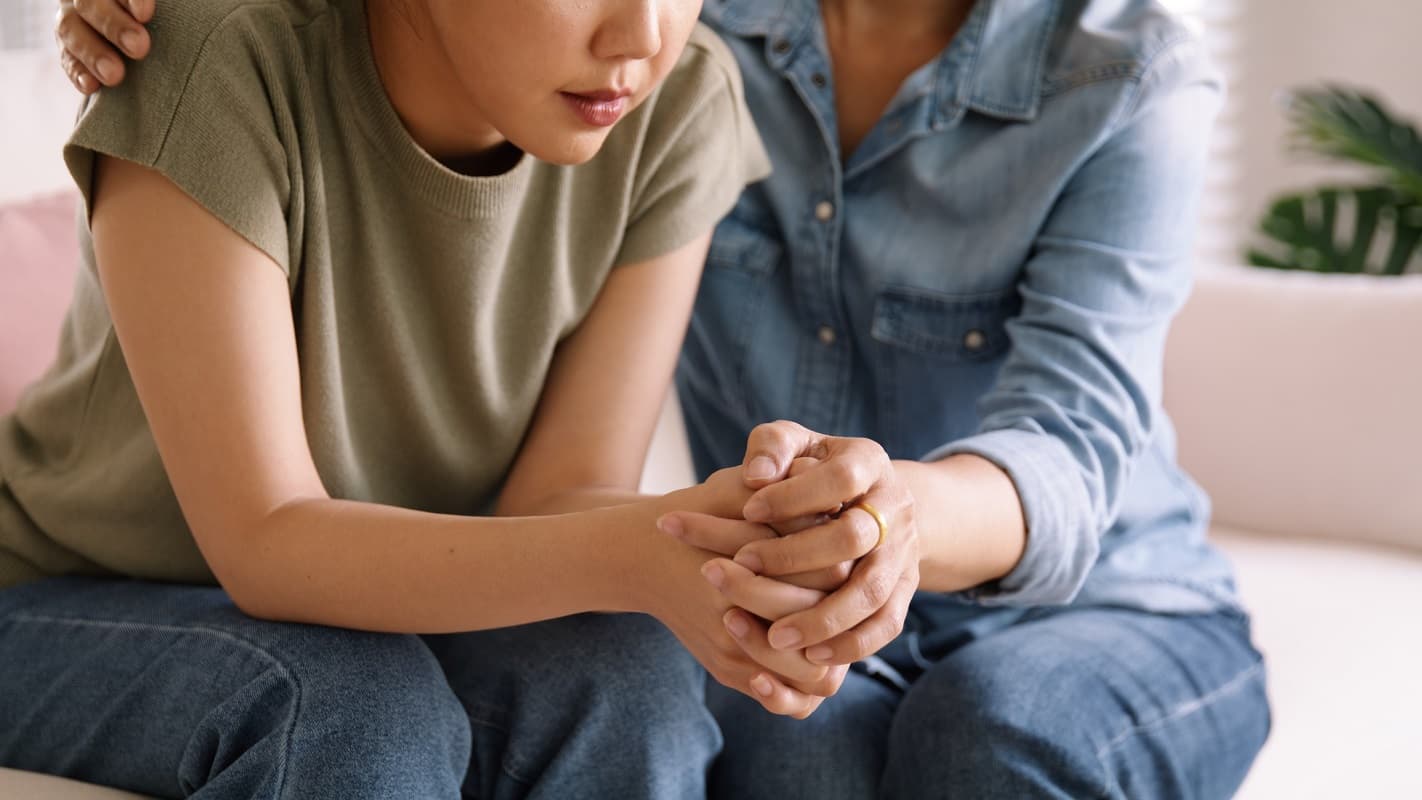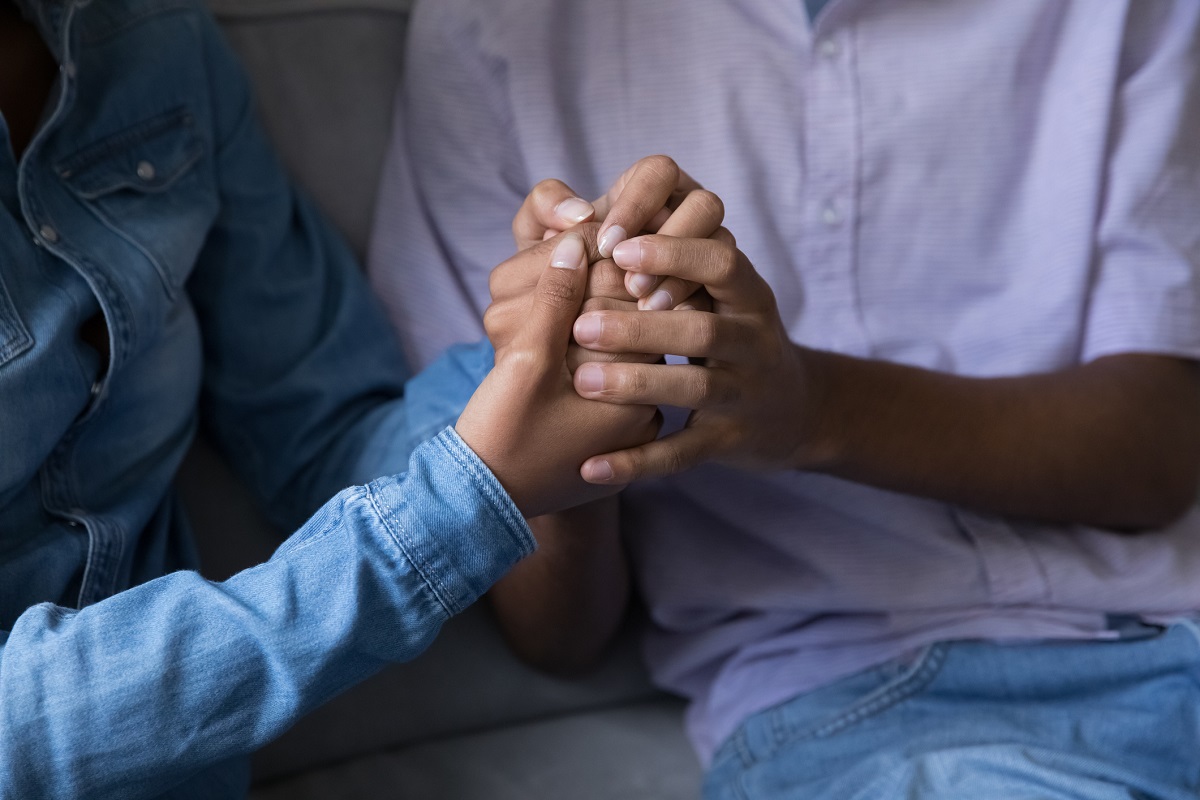Consent is a vital part of any relationship and the foundation of any positive sexual experience. As parents we might find it difficult to talk to our teenagers about it. But talking to them about the importance of consent is one of the most significant ways we can help them have healthy relationships.
Tips for talking about consent
If you're not sure how to approach the subject of consent, Laura Wylie from Rape Crisis Scotland shares some tips for talking about consent with your teen in everyday life.
The link Laura refers to in the video can be found on the gov.scot website here.
What is consent?
Consent should be the basis of every sexual encounter. It means that both parties are actively saying yes because they choose to and aren’t being coerced or forced. It also isn’t just about having sex, it refers to any sexual activity. Even online activities like sending explicit messages or photos require active consent.
Teaching your teen about consent means they know that they never have to engage in any sexual act they don’t want to. It also teaches them they should only ever have sexual activity with someone else who is consenting as well.
It’s important to make them aware that consent needs to be given before every sexual encounter – what someone feels comfortable with one day, they may not want to do at another time. And they should be aware that it isn’t always as simple as saying yes or no. Someone can feel coerced into agreeing to something they don’t want to, or they may say yes then change their mind. And it’s important to let them know that consent can be withdrawn at any time.
Talking to your teen about consent
Consent is not always simple. Especially for young people who are still learning about sex and relationships. They may be worried they consented to something they didn’t want to do or didn’t know how to positively consent to something they did.
When speaking to your son or daughter, make it clear that all sexual experiences should be respectful and enjoyable. Consensual sex should make them feel safe and happy, only they can give consent for themselves and they can never give consent for someone else. Also tell them that just because they said yes to something doesn’t mean they have to go through with it if they don’t want to.
Talking about these things with your teen is difficult and can be awkward for you and them. But by laying out the basics of what consent means for them and for others you’re helping them develop a healthy attitude to sex.
Young Scot have more information to help young people understand the issues around consent which you could look at together. There are also some really helpful videos you can watch together on the Consent is Everything website.
Consent and the law
The age of consent for having sex in Scotland is 16. This means young people have to be 16 to legally agree to have vaginal, anal, or oral sex. This is the same regardless of their sexuality or gender identity.
If they’re under 13 they can’t consent to any sexual activity at all – this includes things like touching in a sexual way.
Young people over 13 have a right to medical privacy when it comes to things like contraceptives and STIs. However, the person they speak to may have to talk to someone else if they’re worried about the safety of the young person.
To protect younger people, it’s an offence for anyone aged 18 or older in a position of trust (for example, a teacher) to have sex with a 16 or 17 year old, or anyone younger.
You can find out more about sex and the law on the CEOP website.
Talking to your teen about harmful gender stereotypes
Your teen’s ideas about consent may be influenced by how they feel men and women ‘should’ behave. These beliefs are often shaped by things they see and read in the media and online, and they’re not always helpful.
For example, they may think that boys should be assertive, or even aggressive, or that girls all want to be ‘swept off their feet’. These kind of gender stereotypes are one of the reasons why girls and women are more likely to experience abuse and violence than men, and which can make them reluctant to report this.
But there are things you can do to help them realise that they don’t need to be defined by what they see and read:
- Explain to them that growing up is a time to explore different identities and feelings and they shouldn’t feel they have to behave in a certain way to conform to gender ‘norms’.
- Talk to your teen about how relationships are portrayed in the shows and films they watch and how they feel about this. Do they think it’s right? How would they behave in a similar situation?
- Discuss what’s okay and what’s not – this could include things like taking or sharing photos of others without their consent, or using sexist language.
- Let them know that there’s nothing wrong with showing or expressing your feelings – it makes you stronger, not weaker.
- Talk about positive gender roles, where people are equal and can be who and what they want.
- Try not to use gendered language, like saying they should ‘man up’ or that they’re being ‘girly’.
- If you have a son, you might consider looking at Police Scotland's About the That Guy campaign with him (although bear in mind these websites are aimed at 18-25 year olds so may not be suitable for younger teens).
 Activities & Play
Activities & Play Behaviour
Behaviour Childcare
Childcare Development & Growing Up
Development & Growing Up Family, Friends & Relationships
Family, Friends & Relationships Feeding Your Baby
Feeding Your Baby Food & Eating
Food & Eating Health & Safety
Health & Safety Mental Health & Wellbeing
Mental Health & Wellbeing Money & Work
Money & Work Online Behaviour & Safety
Online Behaviour & Safety Pregnancy & First Days
Pregnancy & First Days School & Education
School & Education Sleep
Sleep










 Mental Health & Wellbeing
Mental Health & Wellbeing
 School & Education
School & Education